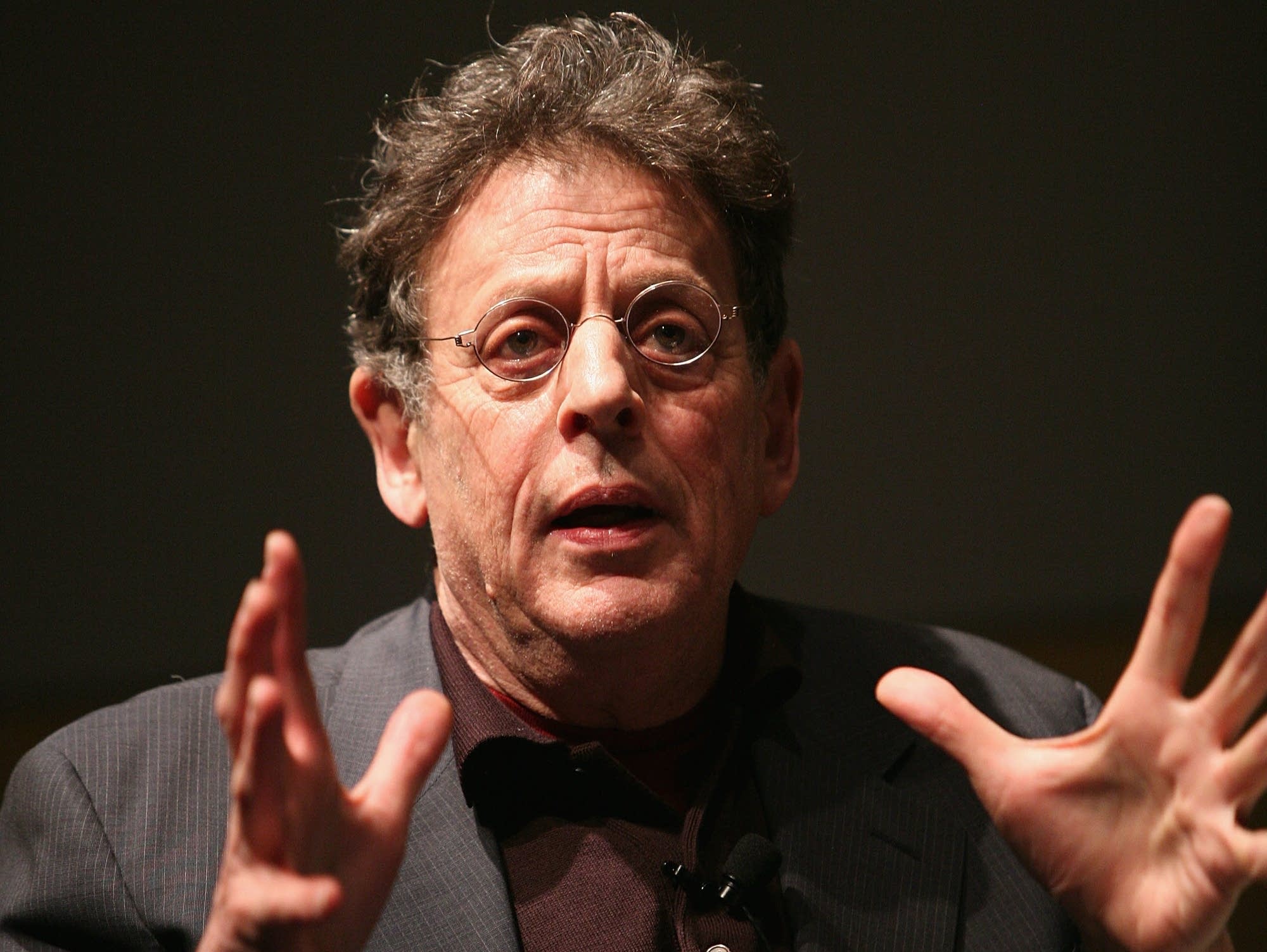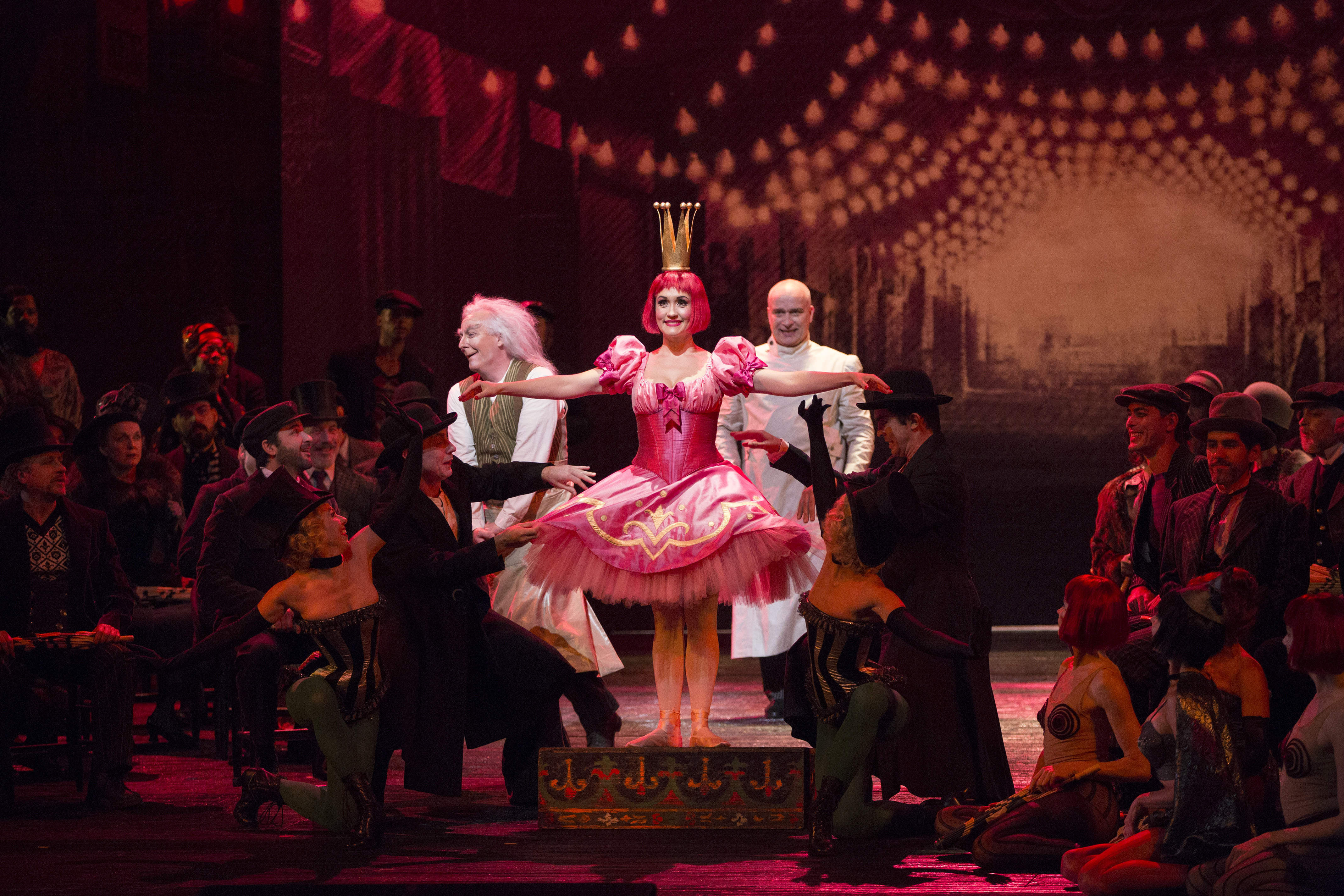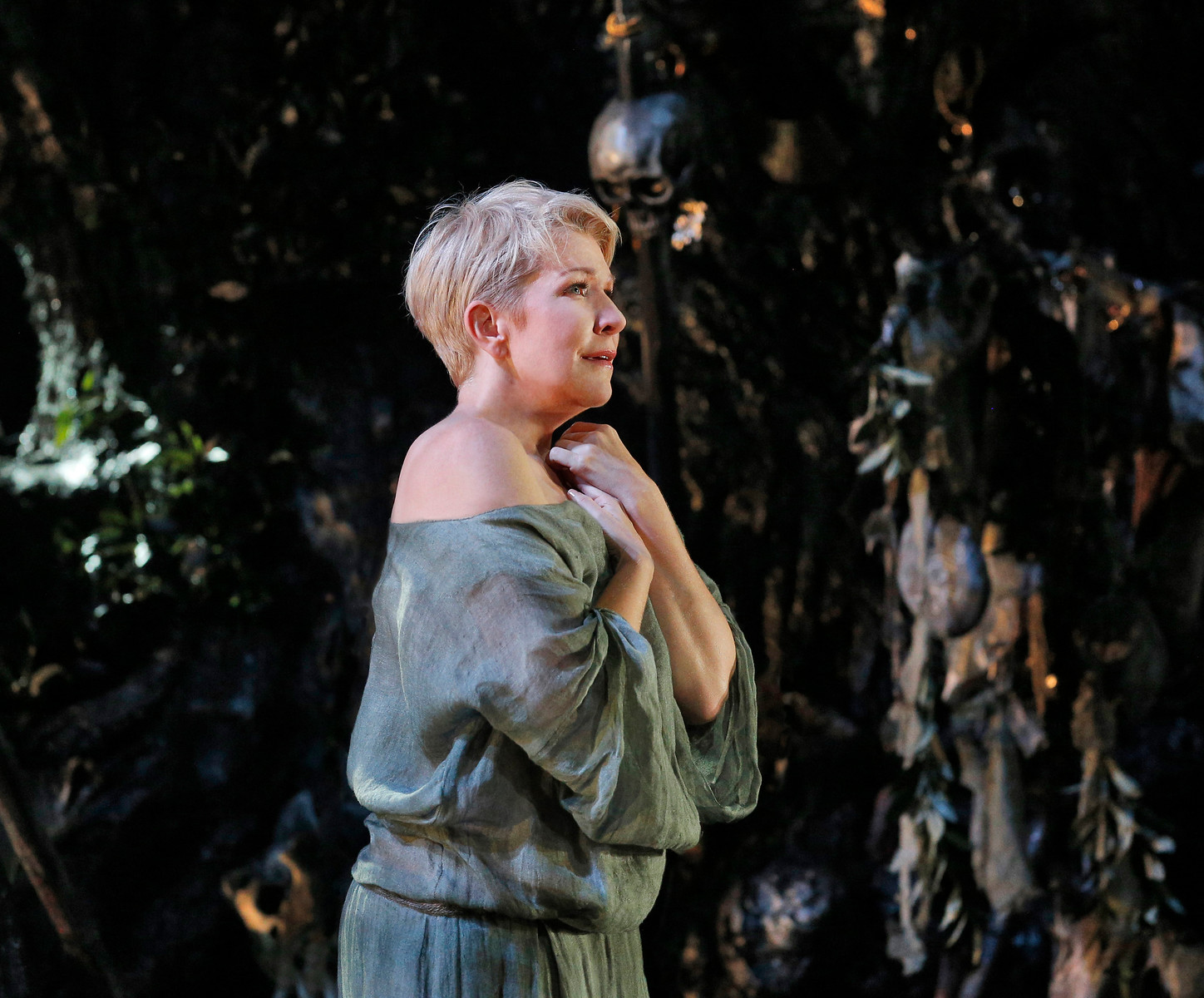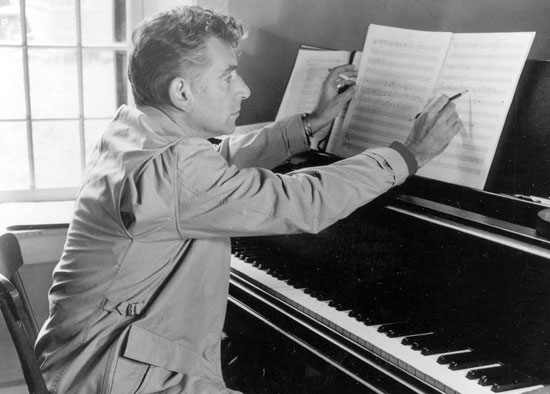Philip Glass is a grand old minimalist, having turned eighty last January. (Another gom—grand old minimalist—is a year older. That would be Steve Reich.) At the New York Philharmonic, they played a new work by Glass, or a relatively new one: a concerto for two pianos, premiered in 2015, revised in 2016. Few concertos for two pianos have reached the mainstream repertory. You hear one by Mozart every now and then, and, even more rarely, Poulenc’s.
According to the Philharmonic’s program notes, which I read after the concert, Glass’s concerto is in three movements: fast, fast, and slow. Sitting in the hall, I thought I heard four movements, or possibly two—the performers paused just once.
If this concerto were written by someone other than Glass, I would call it “Glassian,” and I suppose one can call it that still. It is instantly recognizable, having the Glassian sheen, and the Glassian vibe. It is gay, jazzy, bony, and repetitive. (Another “bony” work would be Stravinsky’s Capriccio for Piano and Orchestra. Come to think of it, he wrote a two-piano concerto, too, although his is for those pianos alone, without orchestra.) There is downward chromaticism in Glass’s piece. The music is pleasant—and after about five minutes, you think, or I thought, “Will this be it? How long will it go on?” But there are some, to be sure—many—who like it to go on and on. Glass is one of the most popular classical composers in the world.

Eventually, the music quiets—it is no longer peppy. It is slow and watery. There is a raindrop effect. Then the music gets peppy again, with that Glassian cross between menacing and daring. In due course, some jungle timpani come along. Then there is something like a barcarolle, rocking, sighing—until the music starts to wail.
Few concertos for two pianos have reached the mainstream repertory.
I did not dislike this piece. I think I would have liked less of it. And I will report a curious fact: the concerto made my ears hurt. I don’t mean that the music was offensive. I mean simply that it was very loud—relentlessly, almost assaultively loud—and it made my ears hurt, physically.
At the keyboard—rather, keyboards—were the Labèque sisters, Katia and Marielle, and on the podium was Jaap van Zweden, i.e., the new guy, the music director designate of the New York Philharmonic. A Dutchman, and a violinist as well as a conductor, van Zweden has been the music director in Dallas since 2008. He will assume responsibility full time with the New York orchestra in the fall of 2018.
After the Glass, and after intermission, he conducted one work: the Mahler Fifth. A symphony that is often very loud, no doubt, but one that does not make your ears hurt. Perhaps there is something about the combination of minimalism and fortissimo? The Mahler began with another new guy, i.e., the Philharmonic’s principal trumpet, Christopher Martin. He took over the chair last year. With Mahler’s opening notes, he took his time, wisely. He did not rush this music. And his playing was both loud and beautiful. Later in the first movement, it would be well-nigh operatic. This was first-class playing.
And the conducting? Also first-class. Under van Zweden, the orchestra played together, which is not to be taken for granted, or lightly praised. The conductor was rigorous and intense—his usual mode. He showed a disciplined baton and a musical mind. Between the first and second movements, he did not take much time, which was wise. And, in the second, he was true to the composer’s marking: “Stormily, with greatest vehemence.” He managed the hurly-burly of the music superbly. And yet, “managed” is not the right word: he rode the hurly-burly, as though on the crest of a great wave. The orchestra played with heart, with purpose. They were not merely punching a clock, competently. From van Zweden, I would have liked a bit more joy at the end of the movement. But he had a different case to make. And the pizzicatos were together, a minor miracle.
The third movement is the Scherzo, and van Zweden’s handling of the ländler—the Austrian dance—was highly interesting. The dance was captivating in its rhythm and phrasing. In other parts of the movement, I would have liked more of a smile, more enjoyment. But, again, van Zweden saw things differently. And the ending came off with precision and panache. We might have been listening to the Vienna or Berlin Philharmonic, rather than the New York (no offense to the hometowners).
Most unusual about this performance was the Adagietto, the fourth movement, the most famous movement in the piece. It is normally ethereal, transporting. On this night, it was rather full-bodied and full-blooded—maybe more earthly than I had ever heard it. I liked it. I would not want it this way every time, but once in a while, as part of a conductor’s overall conception? Why not? Van Zweden was unafraid in this music, which I appreciated. Some conductors handle it with sugar tongs, as they do other ethereal music—the Trio in Der Rosenkavalier, for example. That can be all too precious.
The Finale—Mahler calls it a Rondo-Finale—featured some jaunty clarinet playing from Anthony McGill. And it featured ongoing authority from van Zweden. I was not happy with the ending—I like more tension, more frenzy, more jubilation. A jubilant frenzy. Van Zweden was too boxy and sober for my taste. But, given all that had gone on before, I’ll give him a pass.
I expect van Zweden to vault the New York Philharmonic back into the first rank of orchestras.
I expect him to vault the New York Philharmonic back into the first rank of orchestras. I hope the critical establishment is patient with him. He does not offer sexy politics, as far as I know. He is not known for the avant-garde or the experimental, as far as I know. He does not “make statements” (again, as far as I know). I have not heard him praised for “outreach.” He is just a great conductor—which I hope will prove enough.
At the Metropolitan Opera, they staged The Tales of Hoffmann, Offenbach’s hit from 1881. Almost stealing the show was Erin Morley, an American soprano, who sang the role of Olympia, the mechanical doll. Her aria—“Les oiseaux dans la charmille”—was a tour de force. She demonstrated stupendous facility. Every note was in tune, including the shortest ones. (This is rare.) Her high notes, miles above the staff, were exemplary. Her musicality in the aria was almost as impressive as the technical control. And she did all of it while dancing that awkward mechanical dance.

Not to be slighted is the tenor in the title role, Vittorio Grigolo—golden-voiced as usual. He sang one bad note, early on, and no more. In the course of the night, an oxymoron occurred to me: “sensual purity.” That’s what Grigolo sang with. Also, he brought his customary gusto to the proceedings. Is he a ham? Maybe, but that’s better than being a dullard, especially in this opera. Those who fret about dignity should avoid Hoffmann. Grigolo reveled in his voice and reveled in his talent. An audience in the right spirit will welcome this.
The villains—all four of them—were portrayed by Laurent Naouri, the French bass-baritone (and husband of the celebrated soprano Natalie Dessay). His voice was attractive, and also unforced. Native French out of his mouth was a bonus. When he sang the famous aria “Scintille, diamant,” I thought of a phrase: “smooth-tongued villainy.”
Nicklausse was Tara Erraught, an Irish mezzo-soprano. (I don’t think I’ve typed the words “Irish mezzo-soprano” since writing about Ann Murray.) From first to last, Erraught was competent. She was perhaps at her best in Act II, when she was imitating Olympia, to amusing effect. She had a lot of high—a lot of high notes—but not much low (as in the Barcarolle). This mattered little. A Romanian soprano, Anita Hartig, sang Antonia, an ungrateful part, with an ungrateful aria, in my experience. Hartig started out tentative. She would acquit herself honorably, however. A mezzo-soprano from Belarus, Oksana Volkova, was Giulietta (a role usually taken by a soprano). She had the requisite Giulietta attitude. And she poured on operatic passion.
This act in general—Act III—was alive. The preceding act had been dull, frankly, despite Erraught’s Olympia turn. Other parts of the evening were somewhat gray as well. In the pit was Johannes Debus, a German conductor, who leads the Canadian Opera Company. Hoffmann is a tricky opera to conduct in that you have to take it seriously and lightly at the same time. Debus was never less than competent. He is an obvious professional. He is a sure-handed leader. And yet I so often ask for more: more intensity, more beauty, more charisma.
In coming decades, Maestro Debus and other conductors will have to endure a lot of comparison to James Levine. “Levine this, Levine that,” we’ll say. We will be insufferable, and unfair. Well, I’m starting early. It was Levine, really, who taught me The Tales of Hoffmann, in that I’ve heard him conduct it several times. He had me convinced that it was a masterpiece—an outright masterpiece, not just a good show with a few hit moments, chiefly the Barcarolle. On this recent night at the Met, I thought that Hoffmann was, you know . . . okay.
Better than okay—much better—is Norma, Bellini’s hit from 1831. It has its highlights, including “Casta diva” and “Mira, o Norma,” but it is a complete work of art. (In saying this, I do not mean to slight Offenbach but merely to praise Bellini.)
This season, the Met has a new production of Norma, supervised by Sir David McVicar, the Scotsman. I want to apply the phrase “gritty realism” to this production. Gritty realism, when depicting Druids in moonlight? Sure. This is a moody Norma, and its instances of savagery are arresting. Looking at the stage, I thought of a cross between Woodstock and Burning Man, the psychedelic festival in the Nevada desert. Also, Norma’s dwelling—a vast wigwam or hut—is a hoot.
When you arrive at the auditorium, by the way, you see a great big moon on the curtain or scrim. Will the opera tonight be Norma or Rusalka? Or some other moony show? Your program lets you know it’s Norma.
My view of the Met’s job, or purpose, is way too demanding, but here it is: The Met should assemble the best cast available for any opera at any time. This view is indeed unreasonable, but there is still something to it, I think. And Met management did very well with Norma, starting with Sondra Radvanovsky in the title role. She is the bel canto warrioress of our age.
The night I attended, however, she was not at her best. I have written it for many years: Virtually the whole story of Radvanovsky is intonation. When she is “hooked up” and in tune, she is unbeatable. When she is not, everything is different. The entire character of her voice is different when she is out of tune. This is not so with all singers. Frederica von Stade could be in tune or out of tune. Either way, she was Flicka, singing with that same beautiful voice.
Right off the bat, Radvanovsky was out of tune. Think of your fingers at a computer keyboard, when they are not hovered over the right letters—when they are shifted a key or two to the left or right. Everything comes out gibberish. This is how the great Radvanovsky was, when she started singing. She righted herself for “Casta diva,” but not entirely so. Later in the opera, she was indeed “hooked up,” singing like herself. Free, beautiful, commanding, and in tune. This was a great relief.

Opposite her as Adalgisa was Joyce DiDonato, the great American mezzo. I happened to be present for her first Adalgisa, which took place at the Salzburg Festival in 2010. This was a concert performance, and Norma was the veteran and legendary Slovak, Edita Gruberová. DiDonato sang a clean, lyric, and very smart Adalgisa. On the stage of the Met seven years later, she was just the same, except with added drama, as she acted out the part. She brought out Adalgisa’s goodness, passion, vulnerability, and sincerity. Also, she had some vocal potency—sheer volume—that made me sit up a little straighter.
Pollione was Joseph Calleja, the Maltese tenor—and another golden tenor, along with Vittorio Grigolo. On this night, Calleja experienced a little tightness, but he was still golden, and powerful. His late duet with Radvanovsky was “duly operatic,” as I sometimes say. And Calleja and Grigolo teach us a lesson: Just when you think you’re going to run out of tenors, you don’t. The world keeps producing them. We need not succumb to a false nostalgia.
Just when you think you’re going to run out of tenors, you don’t. The world keeps producing them.
Matthew Rose, the British bass, was a robust, ardent Oroveso (father of Norma). The Met chorus was strikingly good, especially the men, alone, doing their primitive thing. The flute is an important singer in this opera, and Chelsea Knox, in the pit, played beautifully (or sang?). Also enhancing the evening was the clarinet, Anton Rist. Players such as these deserve to be on the stage, bowing.
The conductor was Carlo Rizzi, who did not have an auspicious start, in my judgment: the overture was a little relaxed, needing more of a Toscanini fist. I thought other parts of the opera could use more tension—more blood—as well. “Mira, o Norma” has a boffo cabaletta, “Sì, fino all’ore estreme,” and this was slow and heavy. The music was deprived of its impact. Yet Maestro Rizzi, like others I have mentioned in this chronicle, was ever professional.
I must say, the two little boys—portraying Norma and Pollione’s unfortunate offspring—were remarkably well behaved. They were up way, way past their bedtime. I sometimes wonder: What is the effect of this ghastly opera on the children who participate in it? I hope they are oblivious.
Carnegie Hall opened its season with the Philadelphia Orchestra and an all-American program: Bernstein, Gershwin, and Bernstein again. There will be a lot of Bernstein in the immediate future, for his centennial—the centennial of his birth—is in August 2018. The first piece on this first night at Carnegie Hall was the Symphonic Suite from On the Waterfront. Bernstein, you recall, wrote the score for Elia Kazan’s masterly movie of 1954. The score enhances the masterpiece.

As I listened to the suite in Carnegie Hall, the movie came back to me. Funny, how music has the power to do that. I noticed that Bernstein’s score offers a hint of “Something’s Coming”—a song from something that was to come in 1957, Bernstein’s West Side Story. I also noticed a bit of Das Lied von der Erde, Mahler’s quasi-symphony.
Yannick Nézet-Séguin conducted well, having the general feeling. But sometimes he “placed” notes—managed them just so—rather than letting them occur naturally. The strings were warm, and the percussionists were deft. The principal trumpet, David Bilger, was outstanding. (The trumpet is an important instrument in this score.) Also outstanding was the principal flute, Jeffrey Khaner. (What a chair to occupy, given that William Kincaid once sat in it.)
Gershwin was represented by his Rhapsody in Blue, in an arrangement for two pianos—and three pianists. Lang Lang was on one of those pianos, along with a fourteen-year-old protégé of his, Maxim Lando. Lang Lang had injured his left hand, so was performing with his right. On the other piano was Chick Corea, the veteran jazzman. The less said about this performance, the better. It was appalling—absolutely appalling. Lang Lang was almost willfully unidiomatic. It was as though a stutterer, with no knowledge of English, were reciting a sonnet of Shakespeare. Corea, for his part, did some charming things—including an interpolation of a Gershwin song, “The Man I Love”—but not enough. Annoyingly, Nézet-Séguin kept looking back at the pianists, beaming and grooving. Was he being polite? In the orchestra, the triangle came in too early—adding insult to the injury of this overall performance. On this night, Gershwin was dealt a terrible injustice.
On this night, Gershwin was dealt a terrible injustice.
Nézet-Séguin and the Philadelphians ended the concert with the Symphonic Dances from the aforementioned West Side Story. It was okay. Nézet-Séguin did not always hold the orchestra together, and he did some more of his “placing.” He was sometimes stilted, unstylish. The Symphonic Dances—which are marvelous—did not have their full effect. But this performance was blessedly normal, after the Rhapsody.
Hang on, I forgot to mention something about that travesty. Leading off was Ricardo Morales, the principal clarinet. He was perfect. He achieved that blend of classical and jazz that I think Gershwin wants. You simply can’t play that opening better. And Ricardo Morales is a wonder of the musical world today.

